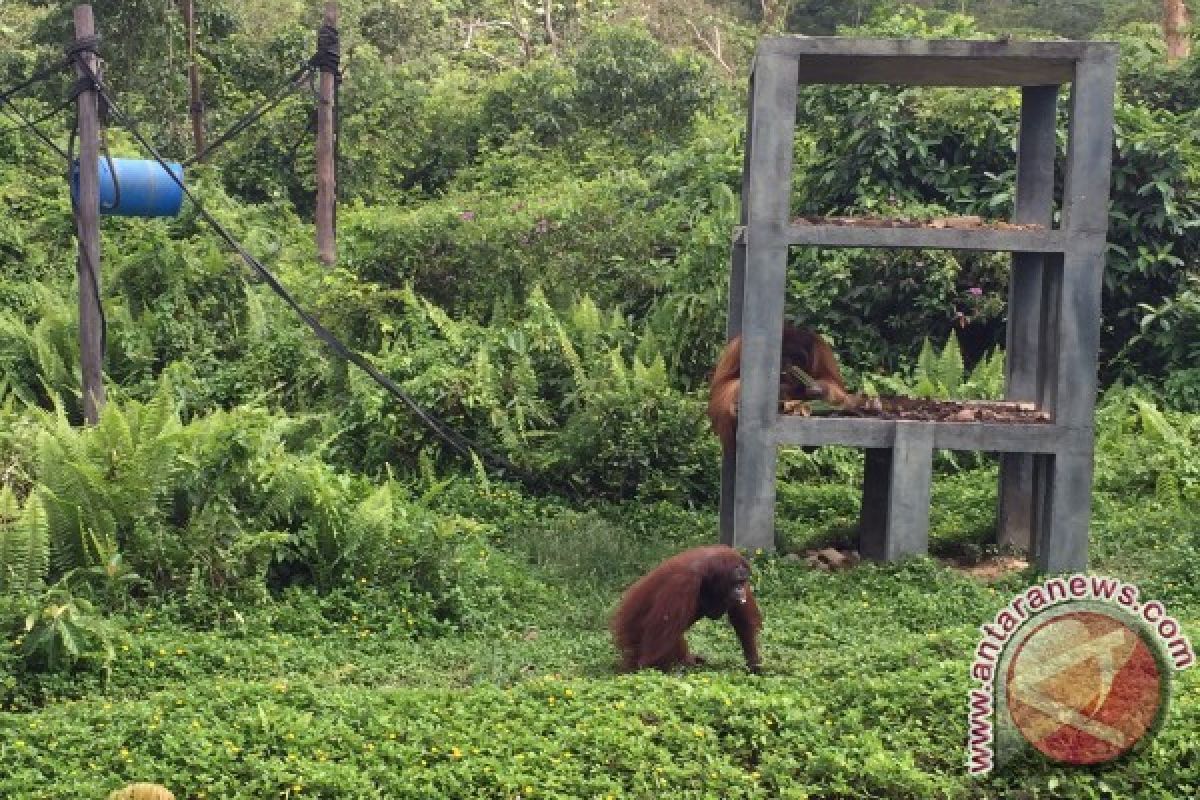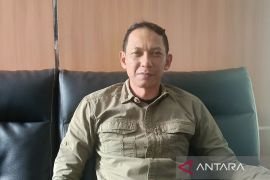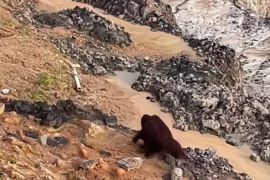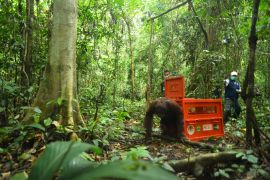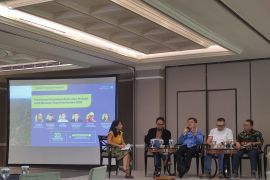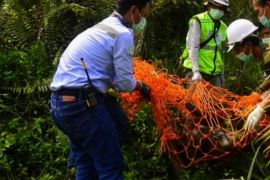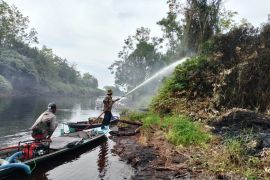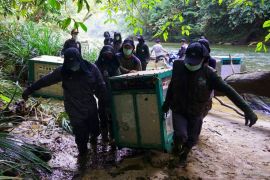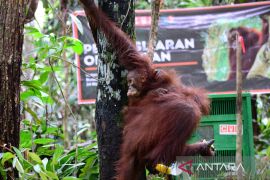Balikpapan, E Kalimantan (ANTARA News) - The Borneo Orangutan Survival Foundation (BOSF) will release four orangutans and return the one that came from Samboja Lestari to the Kehje Sewen Forest, to mark 25 years of dedicated work in the field of orangutan conservation.
With this, the total number of orangutans released by the BOS Foundation to the protected Kehje Sewen Forest since 2012 will come to 49, BOSF spokesman Nico Hermanu said in a press statement here on Tuesday.
The orangutan release program is being carried out by the BOS Foundation, together with the East Kalimantan Natural Resources Conservation Agency (BKSDA).
The plan to release these animals is also in support of the Kaltim Green and Economic Green programs, launched by East Kalimantan Governor Prof. H. Awang Faroek Ishak.
"Releasing orangutans back to their natural habitat is beneficial to the habitat and for conserving the biodiversity of our forests in East Kalimantan. I would like to remind everyone of the importance of preserving nature to mitigate the effects of global warming. Orangutans help spread seeds and open the forest canopy. Therefore, they are our most important conservation partners. I completely support the rehabilitated orangutan release effort and expect to see these released orangutans thrive and become an independent and sustainable wild population," Awang Faroek Ishak said.
The five orangutans, three males and two females, will be transported overland from the Samboja Lestari Centre to Muara Wahau, the sub-regent capital of East Kutai Regency.
The journey will take about 12 hours, with the team making pit stops every two hours to check the orangutans. From Muara Wahau, the trip will take another five hours to reach a point located about 200 meters from the Telen River at the edge of the Kehje Sewen Forest, where land vehicles can go no further.
"The transport cages will then be carefully carried to the riverbank and loaded onto a small boat called a `ces`, which will take us across the river. The cages will then be unloaded from the ces and placed on 4x4 vehicles for the last leg of the journey to the designated release points in the Kehje Sewen Forest," Nico added.
The returning orangutan, a male named Kent, was first released in 2014, but was brought back to Samboja Lestari after only a few weeks when the Post Release Monitoring Team reported that he had been seen with injuries believed to have been inflicted in a conflict with another male orangutan. Kent made a full recovery at Samboja Lestari and is now ready to return to the Kehje Sewen Forest.
The Kehje Sewen Forest is an 86,450-hectare rainforest in East Kalimantan, managed as an Ecosystem Restoration Concession (ERC) area by PT RHOI (Restorasi Habitat Orangutan Indonesia). The BOS Foundation purchased this ERC in 2010, specifically to be used as a release area for rehabilitated orangutans.
Head of the East Kalimantan Natural Resources Conservation Agency (BKSDA), Ir. Sunandar Trigunajasa N., said, "We are all aware of the fact that the responsibility of species and habitat conservation rests on all of our shoulders, be it the government, the community, the private sector or public organizations. Therefore, it is necessary for us to fully support the BOS Foundation`s orangutan release effort, as it is an important step in natural habitat management, which is protected by law. The East Kalimantan BKSDA deeply appreciates the cooperation we have, not only with the BOS Foundation, but also with other conservation organizations. Let`s work harder together to conserve our rich nature," he stressed.
This year, the International Union for the Conservation of Nature (IUCN) listed Bornean Orangutans (Pongo pygmaeus) as "critically endangered."
Considering the BOS Foundation is still caring for a further 200 orangutans at Samboja Lestari, there is an urgency to release orangutans once they have completed their rehabilitation process in order to help save wild orangutan populations.
Dr. Ir. Jamartin Sihite, the CEO of the BOS Foundation, said, "This year, we received some bad news. The Bornean orangutan conservation status was reclassified as `critically endangered` due to a further loss of habitat. It is predicted that the wild orangutan population is going to sharply decrease in the coming years. This forces us to immediately find suitable forest areas for releasing orangutans from our rehabilitation centers. But this is our collective responsibility. The BOS Foundation desperately needs support and commitment from both central and regional governments, not only to provide suitable areas, but also to strengthen law enforcement in case of crimes related to habitat destruction. The East Kalimantan BKSDA has been working actively with us, but we simply need more active hands to ensure conservation of orangutans and their habitats."
This release has only been possible through cooperation between the BOS Foundation and the East Kalimantan BKSDA, the Provincial Government of East Kalimantan, the local governments of East Kutai and Kutai Kartanegara regencies, and the local residents of these regencies.
The BOS Foundation is extremely grateful for the moral and financial support provided by BOS Switzerland, PT Bank Central Asia (BCA) Tbk, individual donors and other partners and organizations from around the world concerned with orangutan conservation in Indonesia, he acknowledged. (*)


